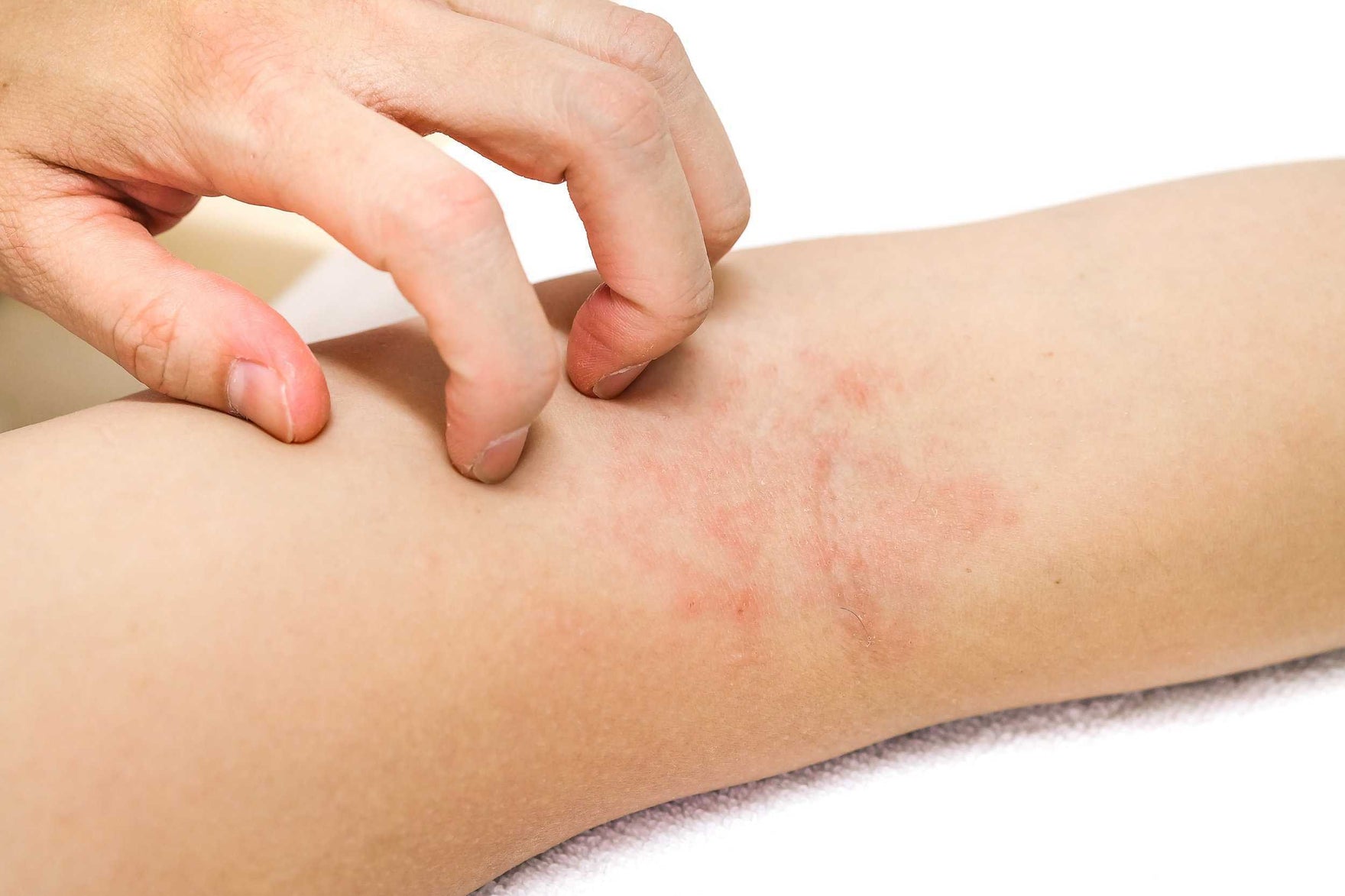
Eczema*
Eczema, or atopic dermatitis, is a chronic skin condition that leads to dry, itchy, and inflamed skin. It is particularly common in children but can affect people of all ages. As a parent, understanding eczema can help you manage your child’s symptoms and improve their quality of life. Here’s a guide to help you understand and care for your child’s eczema:
1. What Causes Eczema?
• Genetics: Eczema often runs in families, especially those with a history of allergies or asthma.
• Immune System: People with eczema have an overactive immune response, leading to inflammation and skin sensitivity.
• Environmental Factors: Triggers such as allergens (e.g., dust mites, pollen), dry air, and extreme temperatures can cause flare-ups.
2. Symptoms to Watch For
• Itchy, Dry Skin: The primary symptom is persistent itchiness, which can worsen at night.
• Red or Brown Patches: These appear commonly on the face, hands, feet, elbows, and knees.
• Thickened Skin: Chronic scratching may lead to thick, leathery skin or small raised bumps.
3. Types of Eczema
• Atopic Dermatitis: Most common type, usually appearing in early childhood.
• Contact Dermatitis: Triggered by contact with irritants (e.g., soaps, detergents).
• Dyshidrotic Eczema: Causes small, itchy blisters, often on the hands and feet.
4. Common Triggers
• Irritants: Soaps, detergents, certain fabrics (like wool).
• Allergens: Pet dander, pollen, dust mites.
• Weather: Cold, dry air or hot, humid conditions.
• Stress: Can worsen symptoms in children and adults alike.
5. Prevention and Management
• Moisturize Regularly: Applying a gentle, fragrance-free moisturizer helps maintain the skin barrier.
• Bathe Smartly: Short, lukewarm baths with mild soap are best. Pat the skin dry, then immediately apply moisturizer.
• Identify Triggers: Keep a journal to track potential triggers and avoid them where possible.
• Dress Comfortably: Use soft, breathable fabrics (like cotton) to minimize irritation.
• Avoid Scratching: Keep your child’s nails short and consider using gloves at night to prevent scratching during sleep.
6. Treatment Options
• Topical Steroids: Low-dose creams can reduce inflammation and itching but should be used under a doctor’s guidance.
• Antihistamines: These can help control severe itching, especially at night.
• Immunomodulators: These are prescribed for moderate-to-severe eczema cases when steroids aren’t effective.
• Wet Wrap Therapy: This involves applying moisturizers, covering with damp bandages, and then sealing with a dry layer to lock in moisture.
7. When to See a Doctor
• Frequent Flare-Ups: If your child’s eczema doesn’t improve with at-home care or keeps coming back.
• Infected Skin: Signs include yellowish crusts, oozing, or increased redness/swelling.
• Sleep Disruption: Severe itching at night that affects your child’s sleep may require medical attention.
8. Support Your Child Emotionally
• Eczema can affect self-esteem, especially as children become more self-conscious about their appearance. Be supportive, listen to their concerns, and reassure them that they’re not alone.
Managing eczema can be challenging, but with the right steps, it’s possible to reduce flare-ups and keep your child comfortable. Always consult with a dermatologist for a tailored treatment plan.
Leave a comment
Comments will be approved before showing up.



